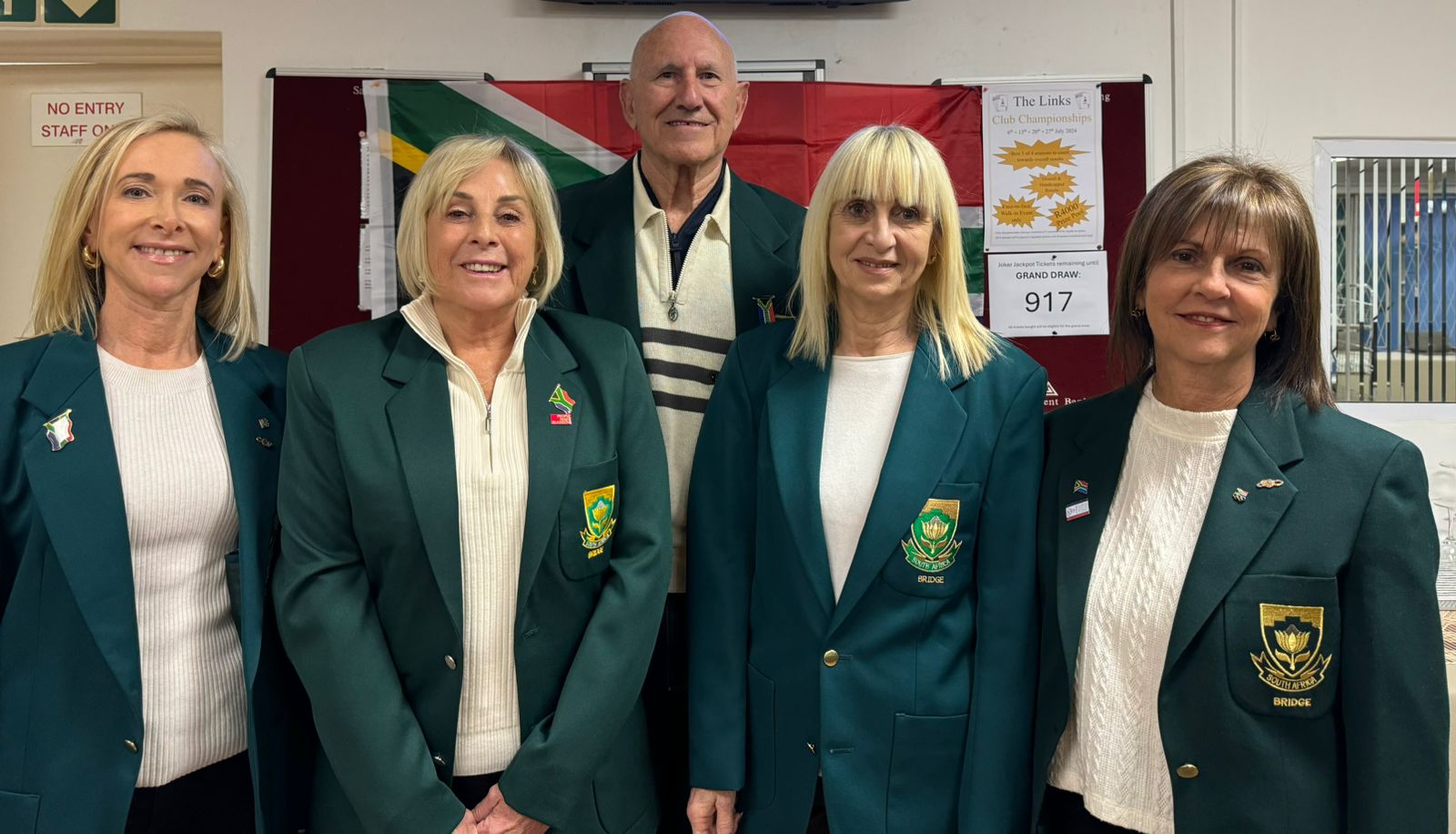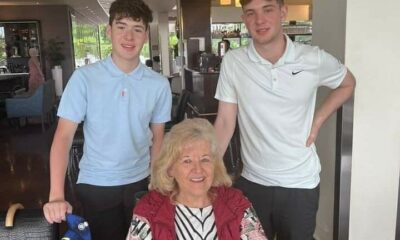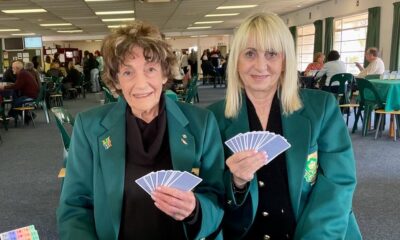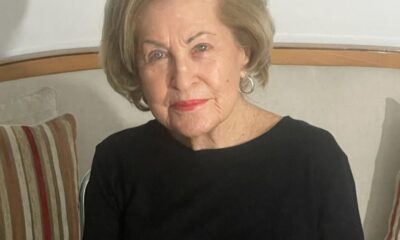
Sport

SA team at Argentina championship – a Jewish affair
Of the 14 South African bridge aficionados selected to play in the World Bridge Championships in Argentina in October, seven are Jewish.
Former information technology consultant Sharon Izerel and financial analyst Diana Balkin were two of those who played their cards right for six gruelling days of bridge to qualify for the South African bridge team going to compete in Argentina.
Their fellow Johannesburg-based Jewish players in the team are bridge teachers Val Bloom and Sharon Lang, and ex-professional bridge, poker, and backgammon player Neville Eber. Cape Town-based entrepreneur Alon Apteker and his son, United States-based Noah, a qualified electrical engineer, also made the grade.
They competed in the trials for the South Africa men’s, women’s, and mixed teams.
Eber and the Aptekers qualified for the men’s team. Izerel, Balkin, and Bloom qualified for the women’s team, while Lang qualified for the mixed team.
“We have played with or against each other in many tournaments and often socialise together,” Izerel says. “The vibe is excellent. In fact, I’m proud to be on the same team as Sharon, who was a pupil of mine,” says Bloom.
Besides Izerel and Noah Apteker, the others have all qualified for the championships before and have travelled to play in overseas tournaments.
The South African teams will be pitted against many world champions and professional bridge players in the championships, held every four years in the Summer Olympics year. “It will be tough to do well, but we’ll do the best we can,” Izerel says.
About 40 countries are sending teams to compete in the Centro de Convenciones de Buenos Aires. “In general, the standard overseas is extremely high,” Bloom says. “Unfortunately, we’re out of the loop,” says Bloom, because it is tricky for them to get to various international tournaments.
“In addition, we’re a small bridge-playing nation, resulting in far fewer top players and effective local competition. However, we thoroughly enjoy and benefit from participating in the championships, the highlight of the bridge calendar.”
Izerel and Balkin, who only started playing as a partnership two and a half years ago, have been playing in a tournament almost every day in preparation for the championships.
“We’re also having lessons once or twice a week online with our bridge teacher, Tim Cope, who is refining our bidding, play, and defence,” Izerel says. “We have compiled a comprehensive set of notes to refer to, and are continually updating and improving our system. We also read as many bridge articles and books as possible.”
Izerel started playing bridge about 22 years ago. “I was immediately captivated by this wonderful game of skill and strategy,” she says. She competes in most of the big annual tournaments throughout South Africa. “Since my kids are grown up, I now have a lot of time to concentrate on my bridge,” she says.
Balkin started playing bridge in her 20s. “I have previously represented South Africa twice in the women’s team, and once in the senior’s team [60+ years]. I’ve also represented South Africa at the Commonwealth Games.”
While bridge in South Africa is predominantly played by older people, “we have a few younger stars in Noah Apteker and Rob Stephens”, Balkin says, pointing out that school and university students should be encouraged to take up the game. “As a matter of interest, in the last world championships, two young Israeli women were on the winning team.”
On Thursday mornings, Balkin, Eber, Bloom, and Bernard Donde teach about 90 bridge players while enjoying tea and biscuits.
Bloom started playing bridge at university when invited to join a game in the canteen. Bridge has allowed her to travel the globe, both as a member of the South Africa women’s team and the senior team. “Locally, I’m honoured to have won various titles in all formats, pairs, and teams,” she says.
Eber, a self-described “natural games player”, took to his card-playing occupation easily. He found backgammon and bridge mentally stimulating. “They were financially lucrative. I played for enjoyment and to supplement my income.”
He has been playing bridge, a subculture that tickles his interest, since the age of 18. “I enjoyed the social side and the drive to improve and hopefully become the best.”
He started playing at the University of the Witwatersrand. “I won the very first tournament I played in. In my second year, I won the South Africa pairs championships. Since then, I have won the South Africa championships at least 20 times with various partners. I have represented South Africa in world championships probably 20 times minimum on the open team.”
Eber, the leading master point holder in South Africa for at least 30 years, says playing in good competitions often is the best way to keep sharp.
More than 20 years ago, Alon and a few of his friends took up Eber’s offer to teach them bridge.
Alon went on to win 15 national titles. Internationally, he has represented South Africa 10 times and was part of the team that got to the semi-finals of the world championships in Shanghai in 2007. He has won international events, the highlight being when he and his regular partner, Craig Gower, and a pair of Swedish teammates, won the prestigious HCL International in Delhi in 2018 against “a strong field of world-class international players”.
Noah got interested in the game through watching Alon while growing up. Noah and his older brother, Jude, then joined a group at school to learn formally when the Gauteng Bridge Union sent a group of bridge teachers, including Balkin, to their school.
Noah, whose friends would joke that he was playing bridge against their grandmothers, has won three South African national titles, winning his first teams title aged 16. Internationally, he has played at the World Junior Teams championships for both the U26 England (2017) and the U26 United States (2023) teams. Noah has a British passport as his mother was born in England, and was eligible to play for the United States due to studying in Philadelphia for the past four years.










